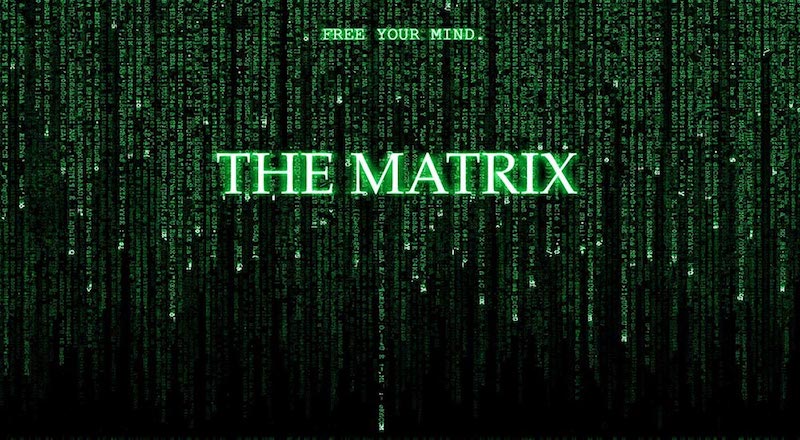The Matrix Saga: Does Neo Have Free Will? (Do We Have Free Will?)
Episode #3 of the course Sci-Phi: Philosophy through science fiction by David Kyle Johnson, PhD
Like Inception, because it involves the protagonist, Neo, finding out that his world is an illusion created by a computer, The Matrix raises skeptical worries about whether we can know that our world is real. But if we follow the story out to its sequels—Reloaded and Revolutions—we see additional worries about whether humans have free will.
Foreknowledge and Free Will Are Incompatible
Early on in Reloaded, Neo meets The Oracle—a program from “the machine world” that knows the future. When she offers him a piece of candy, Neo asks, “Do you already know if I’ll take it?” To which she replies, “Wouldn’t be much of an oracle if I didn’t.” Neo rightly responds, “But if you already know, how can I make a choice?”
Indeed! This is a philosophical problem that dates all the way back to the medieval philosopher, Boethius. If God already knows what you will do before you do it, then you can’t do otherwise—because you can’t change God’s past belief or make his belief false. The argument isn’t that God makes you do what you do, but the fact that he infallibly knows what you will do before you do it entails that you can’t do otherwise. And if you can’t do otherwise, you can’t be free.
Determinism and Free Will Are Incompatible
But the threat to free will doesn’t stop there. Later, Neo meets another program named the Merovingian, who argues that “choice is an illusion, created between those with power, and those without. [T]here is only one constant, one universal.” He continues, “Causality. Action, reaction, cause, and effect.” And to prove his point, he elicits the exact sexual response he wants from a nearby woman by giving her a piece of cake.
Of course, the woman is a machine and the cake contains a program, but that we are mere machines programed by our environment and DNA has long been a worry of scientists and philosophers alike. Indeed, ancient philosophers Leucippus and Democritus suggested that the universe simply consists of atoms in a void, governed by natural laws. If so, all that will occur has been determined since the beginning of the universe; one could even predict the future with complete knowledge of the laws and the location of atoms—and that includes all future human actions, since we, too, are made of those atoms. Philosopher Pierre-Simon Laplace imagined a super-intelligent demon able to do just that.
Unconscious Decisions Aren’t Free Either
But such grandiose knowledge and abilities might not even be necessary to predict human behavior. When Neo meets the Architect—the program who designed the Matrix—he presents Neo with a choice: Save all of humanity or save Trinity (the woman Neo loves). The Architect observes:
“We already know what you’re going to do, don’t we? Already I can see the chain reaction, the chemical precursors that signal the onset of emotion, designed specifically to overwhelm logic, and reason. An emotion that is already blinding you from the simple, and obvious truth: She is going to die, and there is nothing that you can do to stop it.”
By looking at the structure and activity of Neo’s brain, the Architect correctly predicts what Neo will do. Worse still, the part of Neo’s brain that makes his decision isn’t conscious. The choice Neo makes sure doesn’t seem free.
Unfortunately, scientific experiments suggest the same is true of humans. Psychologists, like Benjamin Libet, and neuroscientists, like Itzhak Fried, Stefan Bode, and Antonio Damasio, have not only discovered that the “readiness potential” that signals the onset of a decision comes from unconscious parts of the brain. They have also discovered that it precedes conscious decision making—and can even be used to predict the outcome of person’s decision before it is made.
One More Problem
The threats to free will are so severe that many philosophers have tried to reject the idea that free will requires “the ability to do otherwise.” But this is difficult to accept. Isn’t that what one assumes when making a decision? That the future is open? That one is deciding between two equally possible actions? If the future is already written and we therefore can’t do otherwise, how could we be free?
But that brings us to our next topic, because Einstein’s relativity entails that, indeed, the future is already written; it exists just as much as the present and past. This not only serves as a fourth reason to doubt free will but also makes us wonder about the possibility of time travel. And to explore that, next lesson, we’ll talk about the longest running sci-fi TV show of all time: Doctor Who.
Recommended books
The Matrix and Philosophy: Welcome to the Desert of the Real edited by William Irwin
More Matrix and Philosophy: Revolutions and Reloaded Decoded edited by William Irwin
Share with friends

